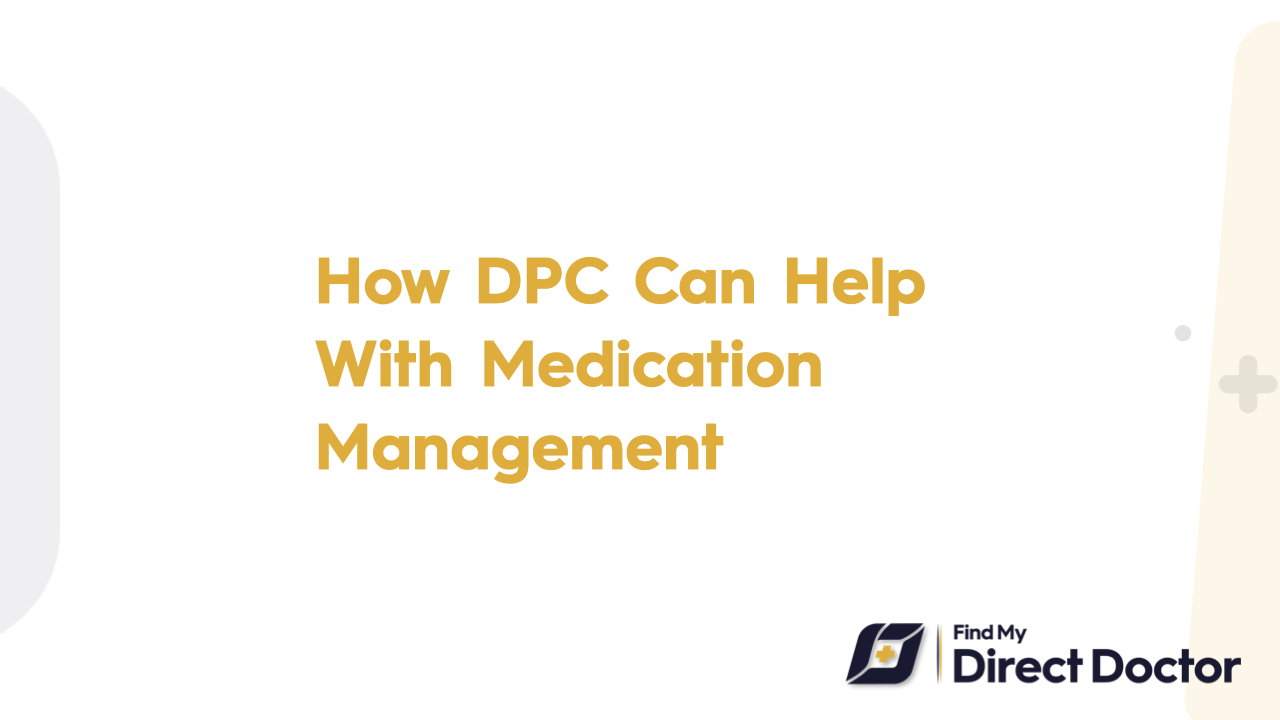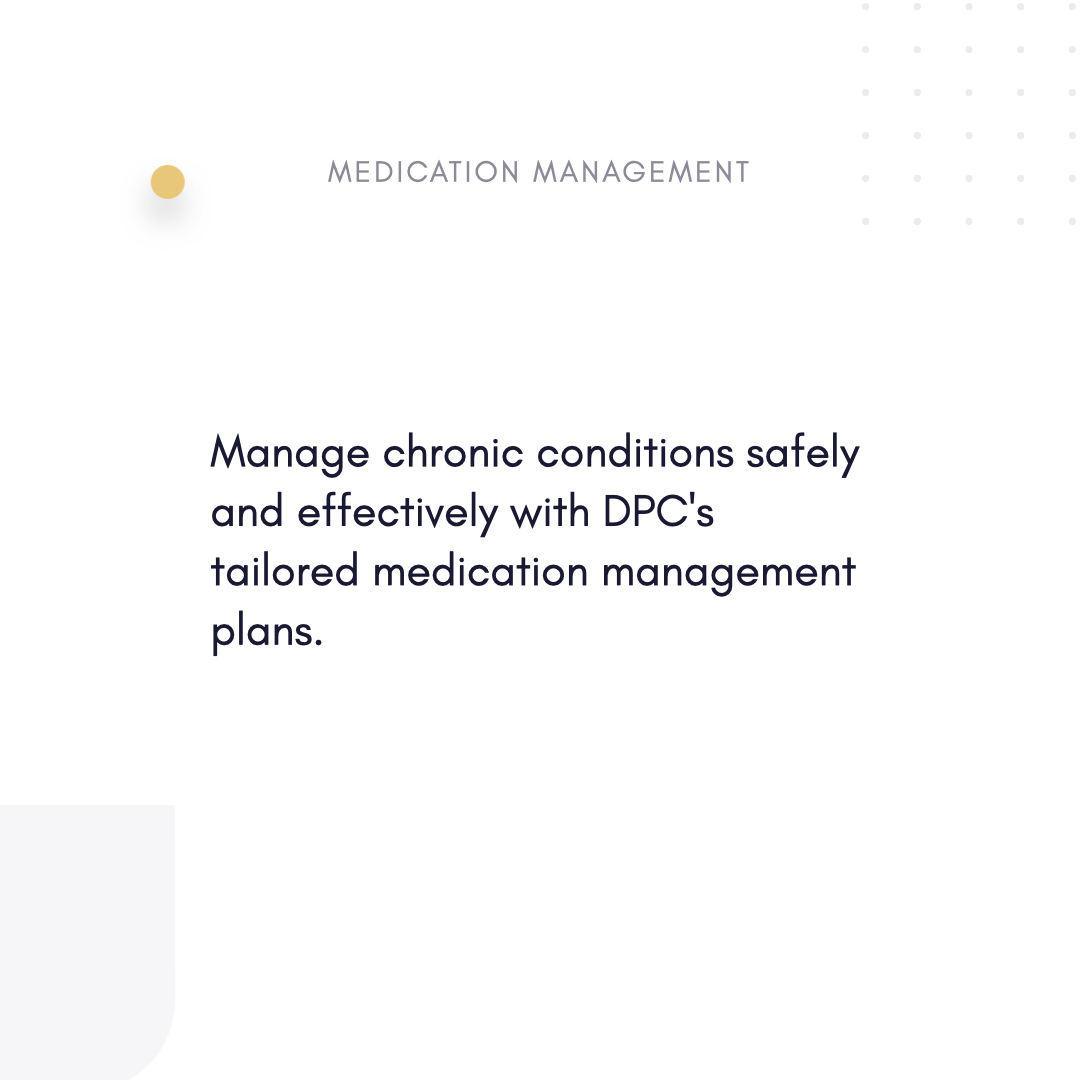Medication Management and Direct Primary Care (DPC): Precision Care, Personalized Support
If you find it hard or dangerous to keep track of all your medications, DPC offers a simple, expert-guided way to make sure each pill helps your health without hurting it.

Understanding how to manage medications: safe and effective treatment
In DPC, medication management means looking at all of a person's medications, including prescriptions, over-the-counter drugs, and supplements.
- Finding interactions: staying away from dangerous combinations.
- Optimizing regimens: making doses easier to take and stopping drugs that aren't needed.
- Keeping track of adherence means making sure you take your meds as directed.
Important information for patients:
- Uses: Stops bad reactions and helps control chronic diseases better.
- Safety: Lowers the risks of polypharmacy, such as falls and kidney damage.
- Costs: DPC includes management in the membership fee, while traditional clinics charge between 100 USD and 300 USD per visit.
Risks of bad management:
- Being hospitalized because of drug interactions or not following the rules.
How DPC Changes the Safety of Medicines
Direct Primary Care (DPC) replaces fragmented prescribing with patient-centered, coordinated care.
1. Full Review of Medications
- A more detailed look: Use software to mark interactions and duplicates.
- Deprescribing: Safely stop taking drugs that aren't needed or are bad for you.
- Working with specialists: Work with cardiologists, psychiatrists, and others.
2. Clear communication and low prices
- Access 24 hours a day, 7 days a week: Get answers to questions about dosing or side effects right away.
- Ways to save money: Suggest generic options and programs that help patients pay for their care.
- Pill organizers and apps: Give people tools to make their routines easier.
3. Follow-Up and Adjustment with Compassion
- Regular check-ins: Keep an eye on drug, blood pressure, or glucose levels.
- Custom action plans: Change the doses based on lab results or symptoms.
- Involve caregivers: Teach family members how to give the medicine correctly.
The effect on real life
- Case 1: John, 70, taking 12 medications. John's DPC team took away 5 of his medications, which lowered his risk of falling.
- Case 2: Maria, 50, has high blood pressure that isn't under control. Maria's DPC provider changed her medications, and her blood pressure reached the target level in four weeks.
Questions and answers: Managing medications in DPC
- Q: How often do you check your medications?
- A: Every visit; full reviews once a year or after being in the hospital.
- Q: Can DPC handle psychiatric medications?
- A: Yes, but only with the help of mental health professionals.
- Q: What should I do if I can't pay for a drug?
- A: DPC looks for coupons, samples, or cheaper options.
- Q: Do reviews include supplements?
- A: Yes. Herbal products can have an effect on prescription drugs.
Why DPC is the best for pharmaceutical care
Deprescribing is a big deal for the American Geriatrics Society. DPC gets things done by:
- Reducing medication errors by 50% compared to traditional care.
- 30% fewer medications per patient on average, which means less polypharmacy.
- Saving money: Members save between 500 USD and 2,000 USD a year on drugs they don't need.
Final Thoughts
In DPC, managing medications isn't just about writing prescriptions. It's also about making sure that every drug you take makes you feel better. With DPC, you get a partner who makes your regimens easier, keeps you safe, and customizes treatments to fit your needs. No more confusion or hidden dangers—just clear, caring care that lets you live your life to the fullest.






